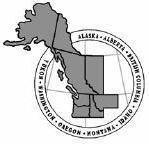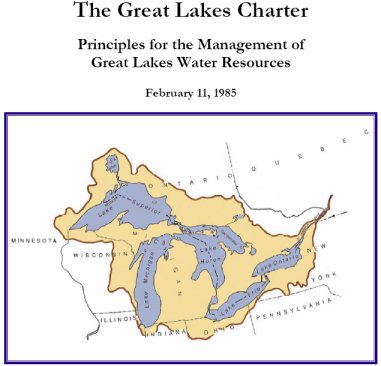6. Political Decentralization.
The military administration in Germany in the initial period should be
carried out with a view toward the eventual partitioning of Germany into
three states. To facilitate partitioning and to assure its permanence
the military authorities should be guided by the following principles:
(a) Dismiss all policy-making
officials of the Reich government and deal primarily with local
governments.
(b) Encourage the reestablishment of state governments in each of
the states (Lander) corresponding to 18 states into which Germany is
presently divided and in addition make the Prussian provinces
separate states.
(c) Upon the partition of Germany, the various state governments
should be encouraged to organize a federal government for each of
the newly partitioned areas. Such new governments should be in the
form of a confederation of states, with emphasis on states' rights
and a large degree of local autonomy.
Political
Decentralization
In 1999,
Vice President Al Gore gave a speech at the 'International
Reinventing Government Conference'. The following are excerpts
from that speech, not necessarily in the same order as he spoke the
words and with emphasis added:
Let me talk just briefly about
America's own experience, and the factors that drove President
Clinton and I to undertake REGO [Reinventing
Government] six years ago. As I mentioned, when we
campaigned in 1992, we saw a growing pressure for reform at the
grassroots -- frustration with high taxes, and a feeling by many
that they were not getting their money's worth. Crime and welfare
were rising, the deficit was exploding, and we had fallen into a
deep recession. There was a crisis of faith -- not just in
government, but in our ability to solve our common problems.
Third, building people's faith
in government. It wasn't only budget deficits that were trapping
our governments in the past. Many of us faced performance deficits
as well -- a legitimate feeling that government wasn't doing what it
said it was going to do. With so little faith in self-government
at home, it is harder to build the faith of the world community
that vibrant free markets and the free flow of capital and ideas
will be sustained.
That's why, in the United States, we started treating our
citizens as "customers" -- the way the best private businesses
treat their customers. Great Britain pioneered this notion of
service to the citizen in the late 1980's.
Building faith also demands that we
bring government closer to the people. Some countries refer to the
principle of "subsidiarity;" other countries speak of
decentralization or devolution. But the concept is the same:
empower governments not in some distant national capital, but in the
places where people live and work, so it can be more responsive
to their needs. Countries as diverse as India, Mexico, Pakistan,
Poland, and Thailand now talk about decentralization and the need to
build local government as more power moves toward the people.
The new model of "governance" is
privatization of government complete with the redefinition of Americans
as "customers" as opposed to citizens. Government as we knew it
was dissolved and in it's place, a "New
Federalism" - government by private networks funded by both the
government and the wealthy Foundations and corporations.
Of course, the trick and it most
certainly is a trick is that the "governance networks" are not really
grassroots at all. They just present themselves as grassroots.
The "SmartGrowth"
network was organized by the EPA (which is directed by the State
Department) to implement UN Agenda 21.
The name of UN Agenda 21 in the United
States is 'Sustainable Development' which is the environmental control
program that at it's core implements the Morganthau Plan of
deindustrialization and conversion to the "pastoral state".
Sustainable Development is the pretty packaging for what will become a
program of depopulation by necessity because this model of an economy
can no more support the U.S. population now than it could support the
German population in 1946 when the Morganthau Plan was being considered
there.
The Marshall Plan at 60: The General’s Successful War On
Poverty
"By late 1946, however, economic hardship and
unemployment in Germany were worrying the United
States, and former President Herbert Hoover was
sent there on a fact-finding mission. Hoover’s
third report of 18 March 1947 noted: “There is
the illusion that the New Germany left after the
annexations can be reduced to a ‘pastoral state’.
It cannot be done unless we exterminate or move
25,000,000 people out of it.” Hoover
well understood that an agricultural economy would
be able to sustain a much smaller population than
an industrialized nation."
Confederations for the 'newly
partitioned areas'
The Pacific Northwest Economic Region was
the first 'newly partitioned areas' to establish their "governance"
organization by law.
|

